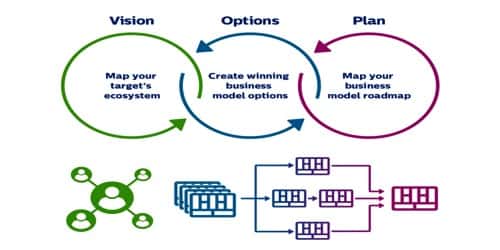Some Key Questions of your Business Model Must Address
A business model is a conceptual structure supporting the viability of a business, including its purpose, its goals, and its ongoing plans for achieving them. It is a plan for the successful operation of a business, identifying sources of revenue, the intended customer base, products, and details of financing.
- What do business critical problems you solve for your customers? Why this is important; because unless your prospect acknowledges a clear and compelling business problem, you have little opportunity to sell them a solution.
- Who are your ideal customers, and how do they make buying decisions? Why this is important; because traditional segmentation isn’t enough. You need to develop a deep understanding of the common characteristics of your best prospects, and of how and why they choose to buy.
- What trends and trigger events cause your prospects to search for solutions? Why this is important; because unless you understand their catalysts for change you are unlikely to engage them early enough in their buying process.
- What are the most important features and capabilities of your solution? Why this is important; because if you can’t relate your solution to their problems you are likely to drown your prospects in a sea of irrelevant information.
- What are your prospect’s alternative options? Why this is important; knowing your direct competitors isn’t enough – you also need to understand all the other options available to your prospect, including “do nothing” and “build it yourself’.
- What category of problem and solution do you fall into? Why this is important: there’s no point in inventing a category your prospect doesn’t understand or can’t relate to. You need to understand what they are thinking of when they go searching for solutions.
- What are your unique value proposition and unfair advantage? Why this is important: because you need to find ways of standing out from the crowd – and of differentiating your approach from all the other options that are available to your prospect.
- What is your go-to-market strategy? Why this is important: because you need to understand the most effective ways of reaching your prospects, converting them into customers, and profitably satisfying their needs – including key partnerships.
- What are your key costs of sale and sources of revenue? Why this is important: because you need to clearly understand the cost and effectiveness of every aspect of your sales and marketing mix – and to have a clear strategy for maximizing lifetime customer revenue.
- What are the key metrics you use to manage the business? Why this is important: because you need to clearly identify the leading indicators you are going to use to determine the effectiveness of your sales and marketing activities and the frequency with which you review them.















